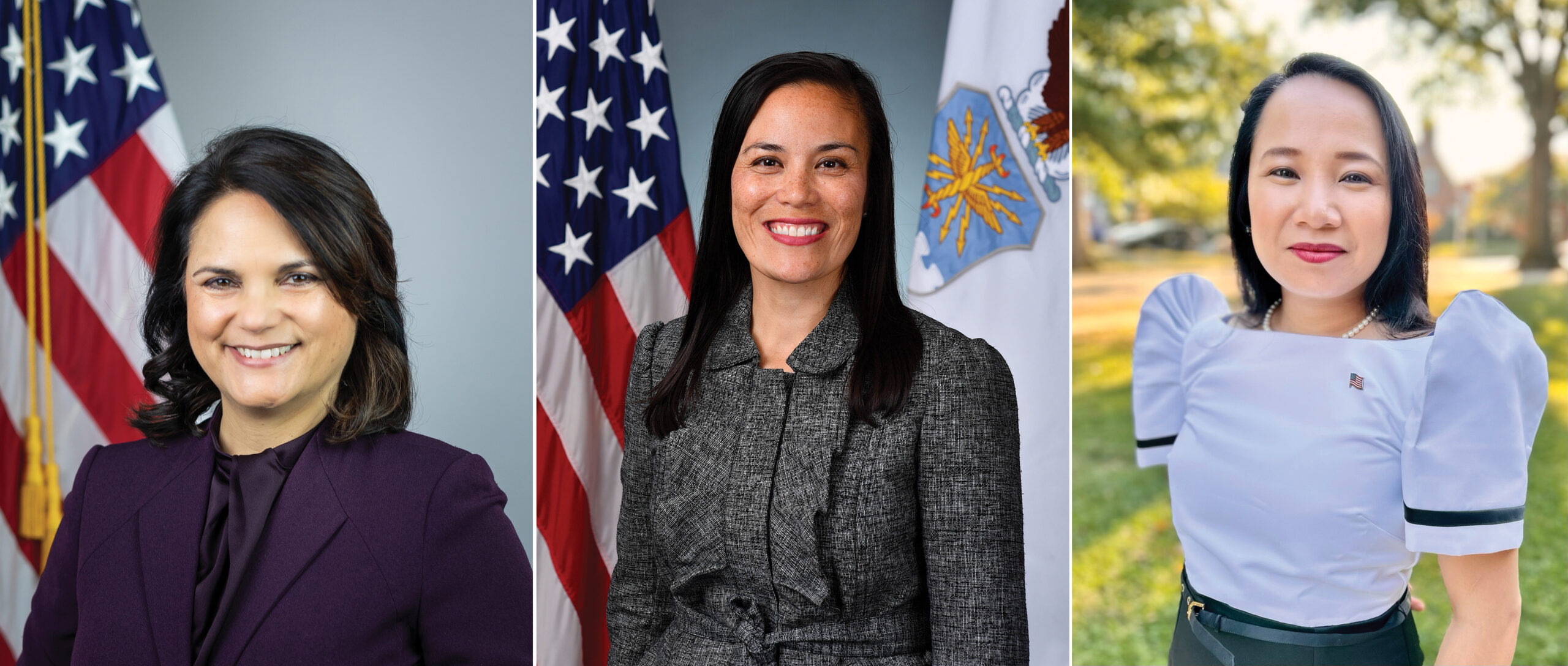
UPON taking office, President Joe Biden promised to have an administration that reflected the United States’ diversity. In addition to having Kamala Harris as the first Black, South Asian and woman vice president, the administration has had a lot of ‘firsts’ in the Cabinet and key agency appointees.
In honor of October as Filipino American History Month, the Asian Journal spoke to several Fil-Ams working across the administration — from the Executive Branch to various agencies that keep the country running.
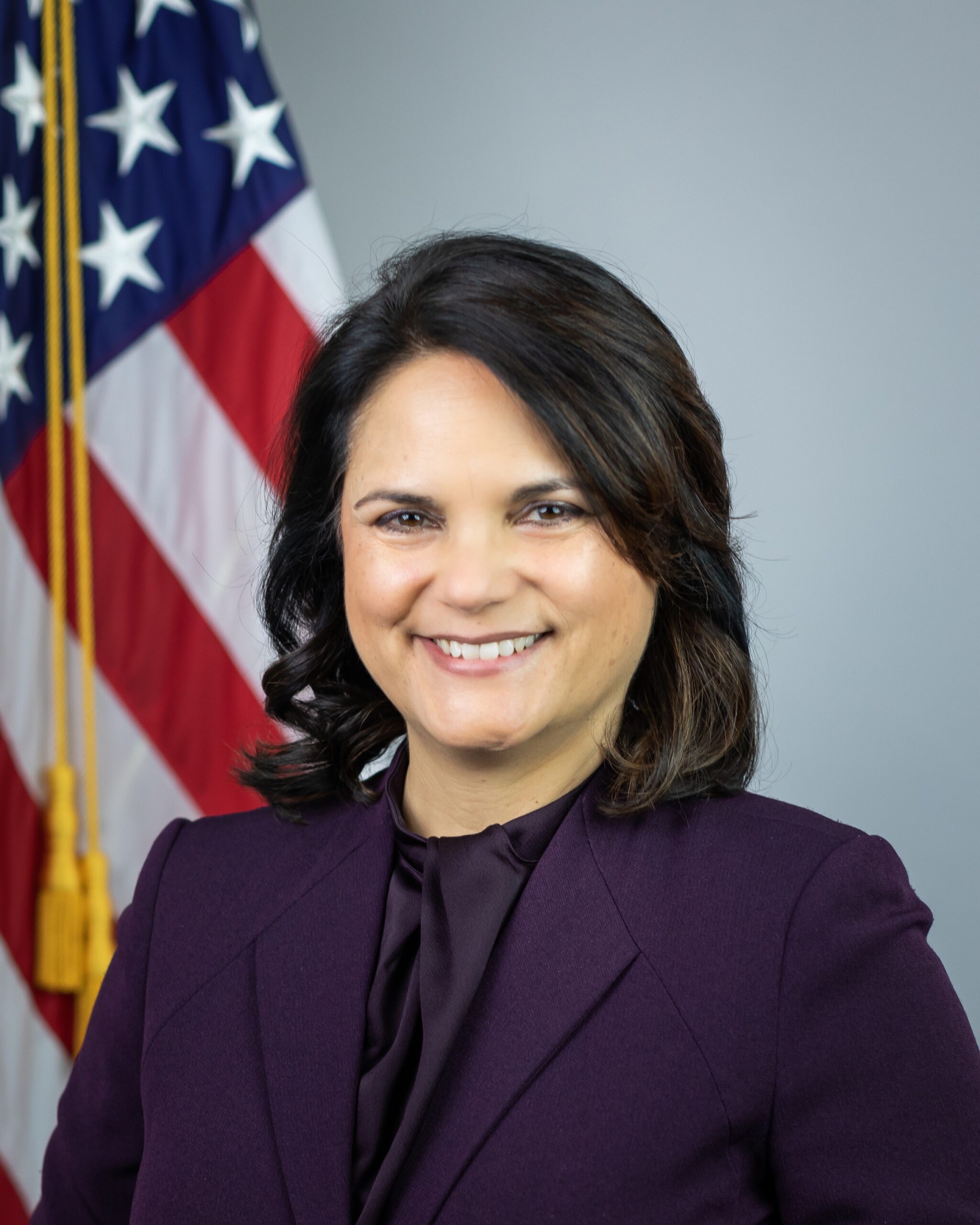 Nani Coloretti
Nani Coloretti
Deputy Director
Office of Management
and Budget
Hometown: Honolulu, Hawaii
Prior to the Biden-Harris administration, Coloretti worked at the Urban Institute and served the Obama administration as the Deputy Secretary of the Department of Housing and Urban Development and as an Assistant Secretary at the Department of Treasury.
How has being Filipino American shaped your identity and career path?
My grandparents emigrated from the Philippines in 1927 to support the many Filipinos moving to Hawaii to work in the sugar cane fields. My grandfather was a minister and a union organizer; my grandmother was one of the first Filipina nurses in this country; and my mom worked as a nurse and, later, as a child-care teacher. Although I did not get a chance to meet my grandfather, who passed away before I was born, my grandmother lived with us and she — along with my Aunts and Uncles — had a strong influence on me and my sisters as we grew up in Hawaii. From my family, I learned to value hard work, to focus on education, and the importance of empathy and taking care of others when you can. All of this has helped shape my career path in public service.
Why did you join the Biden-Harris administration, and what does it mean as a Filipino American?
Throughout my career, I have looked for ways to increase opportunity for everyone and make more real the American promise that if you work hard, you can move your life and the lives of others in a positive direction. The Biden-Harris Administration has focused on equity and inclusion from Day One, and continues to deliver on its promise to support an economy that works for everyone. I am thrilled to be a part of this effort, and as a Filipina, I believe that diverse representation contributes to creating the best solutions to solve complex problems.
What does Filipino American History Month mean to you?
In my lifetime, the Filipino American population has grown eleven-fold, from under 400,000 to over 4.2 million, making it one of the fastest growing populations in the United States. I think it is important to have an annual reflection on the many contributions Filipinos have made and continue to make to this country. It is also a gift to share more about the history of and individual stories about Filipino Americans, some of the most interesting and fascinating people I know.
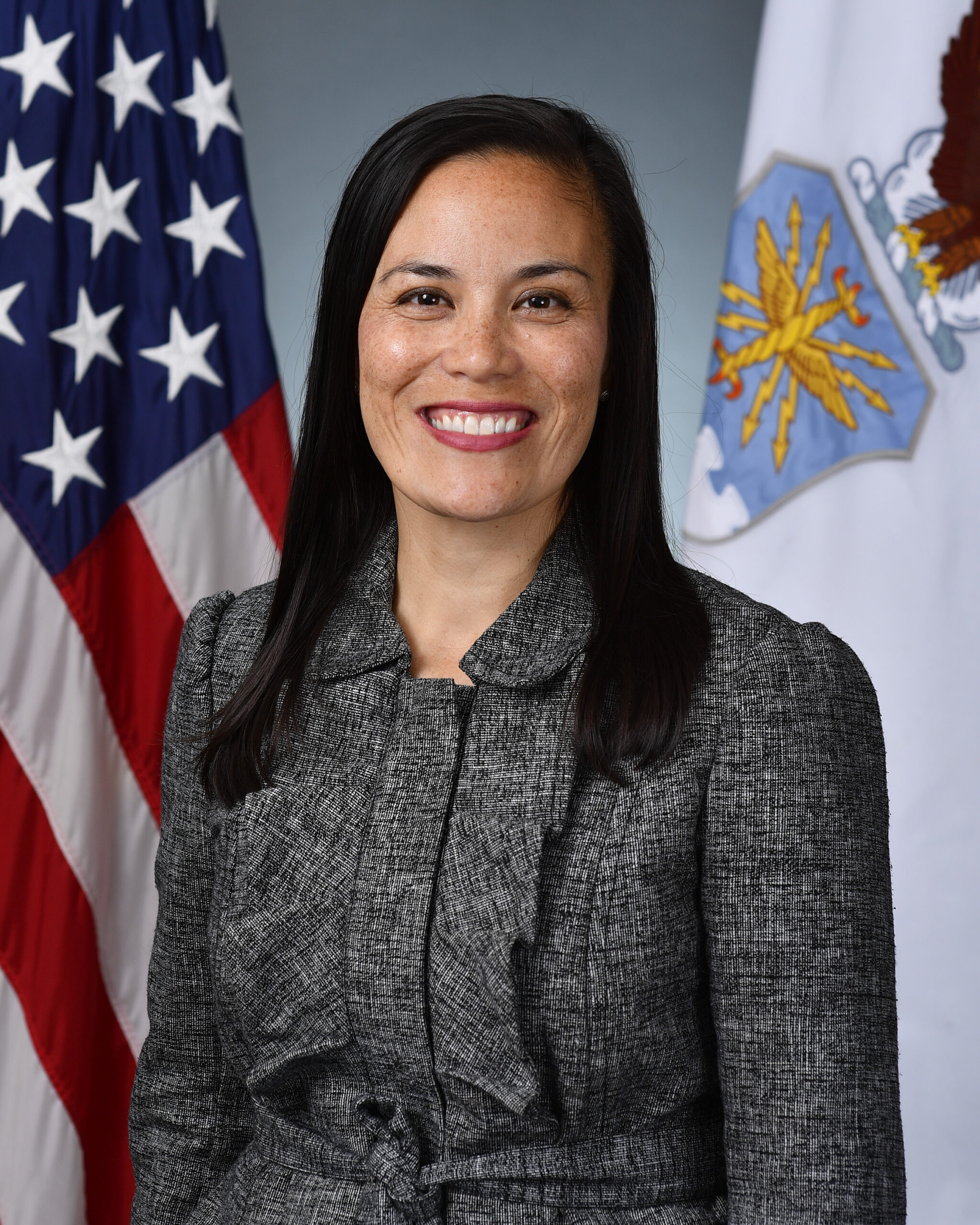 Gina Ortiz Jones
Gina Ortiz Jones
Under Secretary of the Air Force
U.S. Department of Defense
Hometown: San Antonio, TX
An Iraq War veteran, Ortiz Jones is the second-highest ranking civilian in the Department of the Air Force and the second highest-ranking Fil-Am serving in the current administration. She made history as the first woman of color and the first out lesbian to serve as an under secretary of any military department.
How has being Filipino American shaped your identity and career path?
I’m a proud first-generation Filipina American, and growing up my mother always reminded my sister and me that we were lucky, not smart, but lucky to have been born in the United States. My uncle joined the U.S. Navy as part of the Steward program, and my mother came to this country as a domestic helper, despite having graduated from the top university in the Philippines, UP-Diliman. It’s a truly special country where my family’s story is possible, and I’ve always been motivated to serve to ensure those same opportunities are there for those who follow.
Why did you join the Biden-Harris administration, and what does it mean as a Filipino American?
I joined to serve an administration that I knew would reflect my values. As a Filipina American, I’m appreciative of the administration’s focus on ensuring those serving reflect the diversity of the lived experiences of those being served—to include the 4 million Filipinos and Filipino Americans living in the United States.
What does Filipino American History Month mean to you?
Filipino American History Month is a time to celebrate our contributions to American history, as well as an opportunity to think about the strategic importance of the U.S.-Philippines relationship. As the Under Secretary of the Air Force, I see every day just how important our alliance is to the continued peace and security in the Indo-Pacific. Our countries have always had a special relationship, and I think it’s important to keep that in mind as we face our mutual challenges and opportunities.
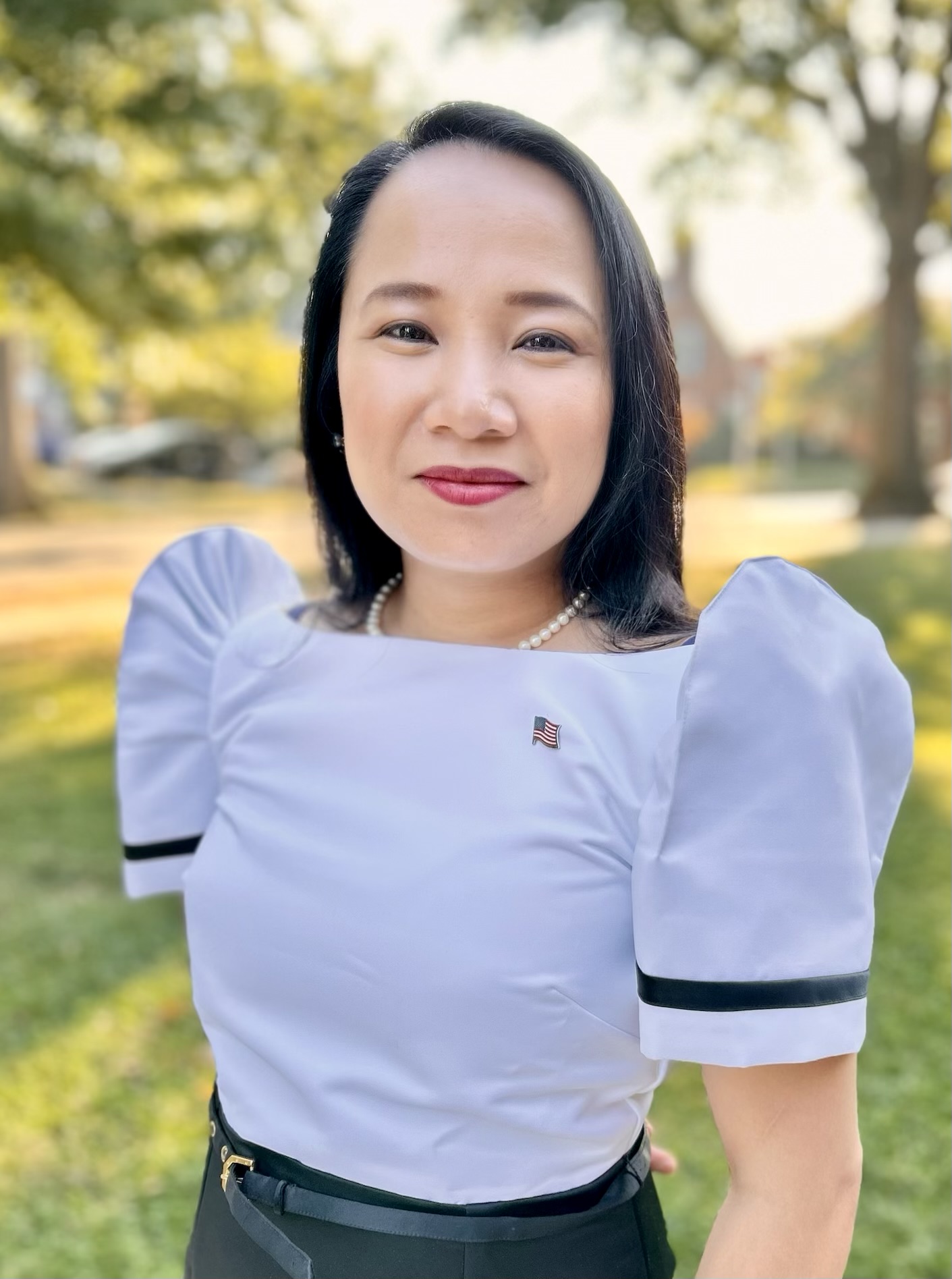 Camille Calimlim Touton
Camille Calimlim Touton
Commissioner
U.S. Bureau of Reclamation
Hometown: Las Vegas, Nevada
Touton is only the second U.S. Senate-confirmed female commissioner in Reclamation’s 119-year history and the first Fil-Am confirmed by the Senate to lead a bureau in the Department of the Interior.
How has being Filipino American shaped your identity and career path?
My grandparents instilled in me the importance of family and service to our community, and country. It is on that foundation and in their sacrifices that a granddaughter of the Philippines is living the American dream.
Why did you join the Biden-Harris administration, and what does it mean as a Filipino American?
I joined the administration to be in service to the American people in carrying out the U.S. Bureau of Reclamation’s mission of delivering water and producing hydropower for the American West.
What does Filipino American History Month mean to you?
May we celebrate what makes us unique and recognize our shared values.
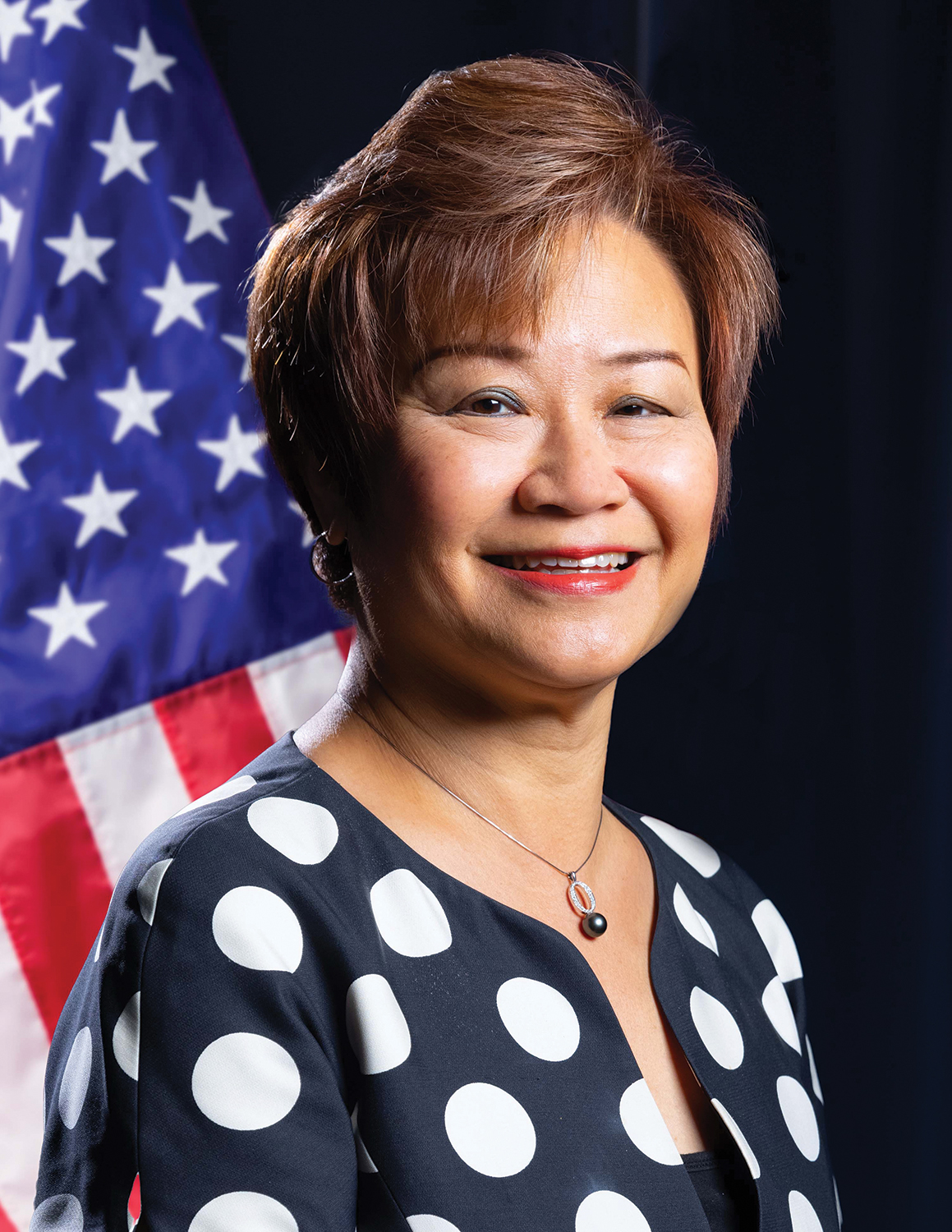
Francey Lim Youngberg
Assistant Director for the Office of Partnership and Engagement, U.S. Department of Homeland Security
Immigration and Customs Enforcement
Hometown: Sara, Iloilo
Before joining ICE, Youngberg’s experience includes intergovernmental relations, nonprofit management and grassroots organizing. She served as Deputy Assistant Secretary for Intergovernmental Affairs and Public Engagement at the U.S. Department of Housing and Urban Development (HUD) for seven years.
How has being Filipino American shaped your identity and career path?
Being a woman, a minority and an immigrant from the Philippines significantly impacted my life and career choices. Having grown up under martial law in the Philippines instilled in me how important it is to safeguard democratic ideals and values and to mentor the next generation of leaders to do the same. So, I became a lawyer, an advocate and a public servant.
Why did you join the Biden-Harris administration, and what does it mean as a Filipino American?
Representation at the highest levels of government is critical to the advancement of underserved and underrepresented groups like Filipino Americans. My earlier career was devoted to advocating for the advancement of Asian Americans and Pacific Islanders in the legal profession, at the Smithsonian, in accessing basic government services, and fighting for a seat at the table where decisions are made. Having served in the Obama Administration and now the Biden-Harris Administration, I am influenced by my life experiences as I strive to ensure inclusion, transparency and accountability in government.
What does Filipino American History Month mean to you?
Filipino American History month should be every day – all of us who are in leadership positions should educate the American public of the Filipino American stories that are part of the American historical narrative. When I was working at the Smithsonian Asian Pacific American Center, we put together the Filipino American Centennial Commemoration with exhibits, public programming and educational outreach in 2006 and the exhibit traveled from 2008-2012.
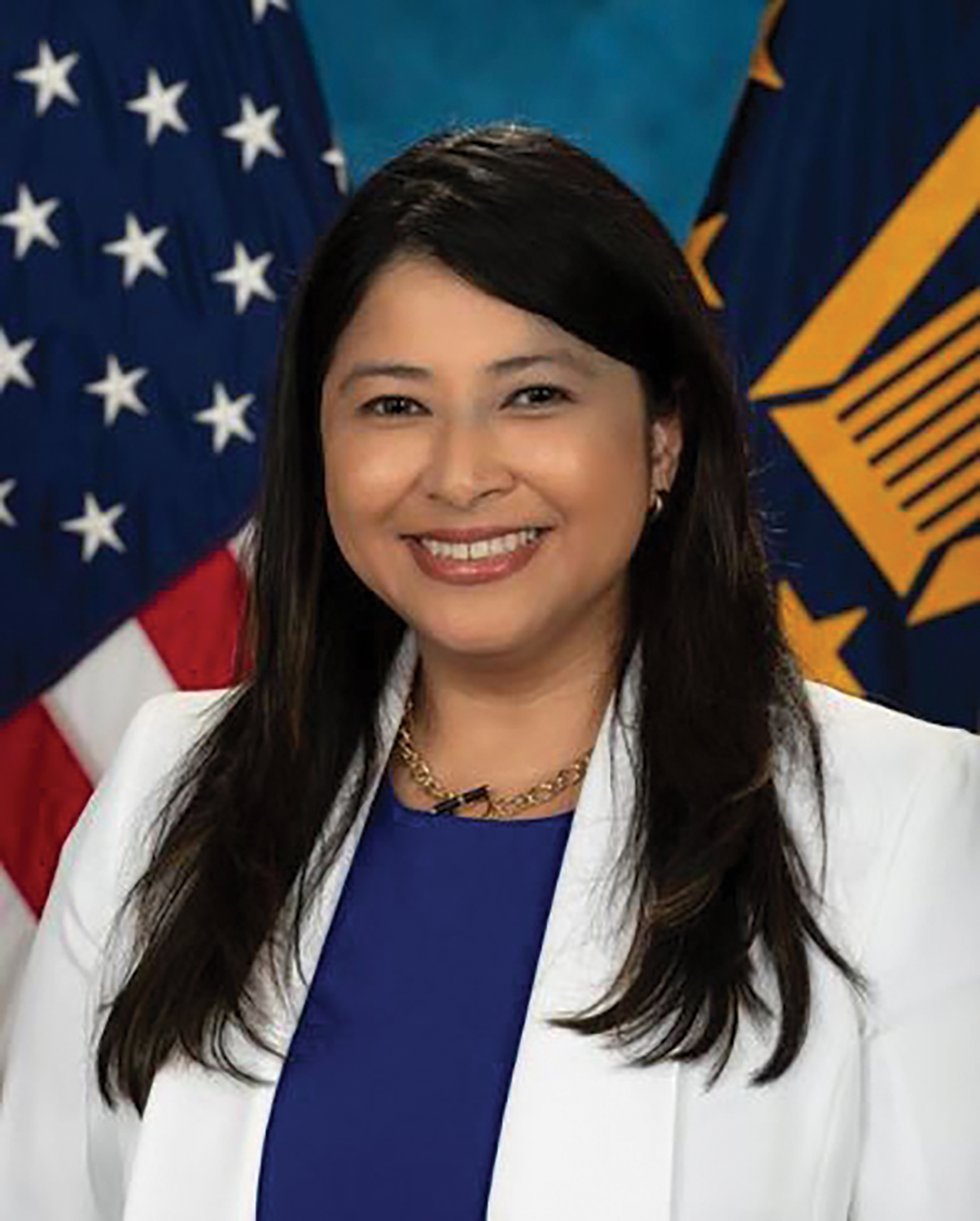
Lourdes Tiglao
Executive Director for Center for Women Veterans
U.S. Department of Veterans Affairs
Hometown: Fort Wayne, IN
With a background across various sectors, including the military, business and health care, Tiglao’s current role focuses on policies, programs and legislation that affect women veterans. She served in the U.S. Air Force as part of the Critical Care Air Transport Team with deployments to Afghanistan, Kyrgyzstan, Uzbekistan, Saudi Arabia, the Philippines, and more.
How has being Filipino American shaped your identity and career path?
As a Filipino American immigrant growing up in Indiana, I didn’t see many people like me — even when I joined the military, assimilating myself to my different environments rather than celebrating who I am. It wasn’t until I found that my fluency in my language being a critical asset to one of my deployments that changed how I saw the importance of celebrating my identity and all the unique assets that I bring — where I don’t shy away at bringing my full self. Filipino Americans aren’t always well-represented in many spaces, yet we occupy a rather unique nexus of intersectional identities, and I appreciate being able to bring that intersectional lens of being a Filipino American immigrant, a woman Veteran, and a voice for those women Veterans who find themselves voiceless because I’ve walked the same path.
Why did you join the Biden-Harris administration, and what does it mean as a Filipino American?
Even before I joined the military, I’ve felt a calling to service, so I have spent my life in various forms of service through volunteering, military service, and through veteran advocacy — whether it’s with Team Rubicon or another veteran service organization. I joined the Biden-Harris administration because I believe in the vision that the administration has set in bringing people together under a larger umbrella and giving space to the different threads of people that make up the fabric of this nation. As a Filipino American immigrant, I appreciate having the opportunity to bring strength to that fabric by bringing not only the lens of my experiences, but also to support and inspire other Filipino Americans to feel empowered — to bring their whole selves in support of our nation. It is through our diversity of thought and experiences that we can enlighten, empower, and strengthen our nation.
What does Filipino American History Month mean to you?
Filipino American History Month allows me to not only have an opportunity to reconnect with my roots, my community, and my diaspora, but it also allows me to share these very personal and inextricable parts of me that makes me who I am. This month is as much a celebration of my heritage, of the values it has instilled in me growing up in the Philippines, as it is a celebration of how far our nation has come in welcoming the diversity of the people that comprise our nation, celebrating the richness and fullness of our culture and humanity.
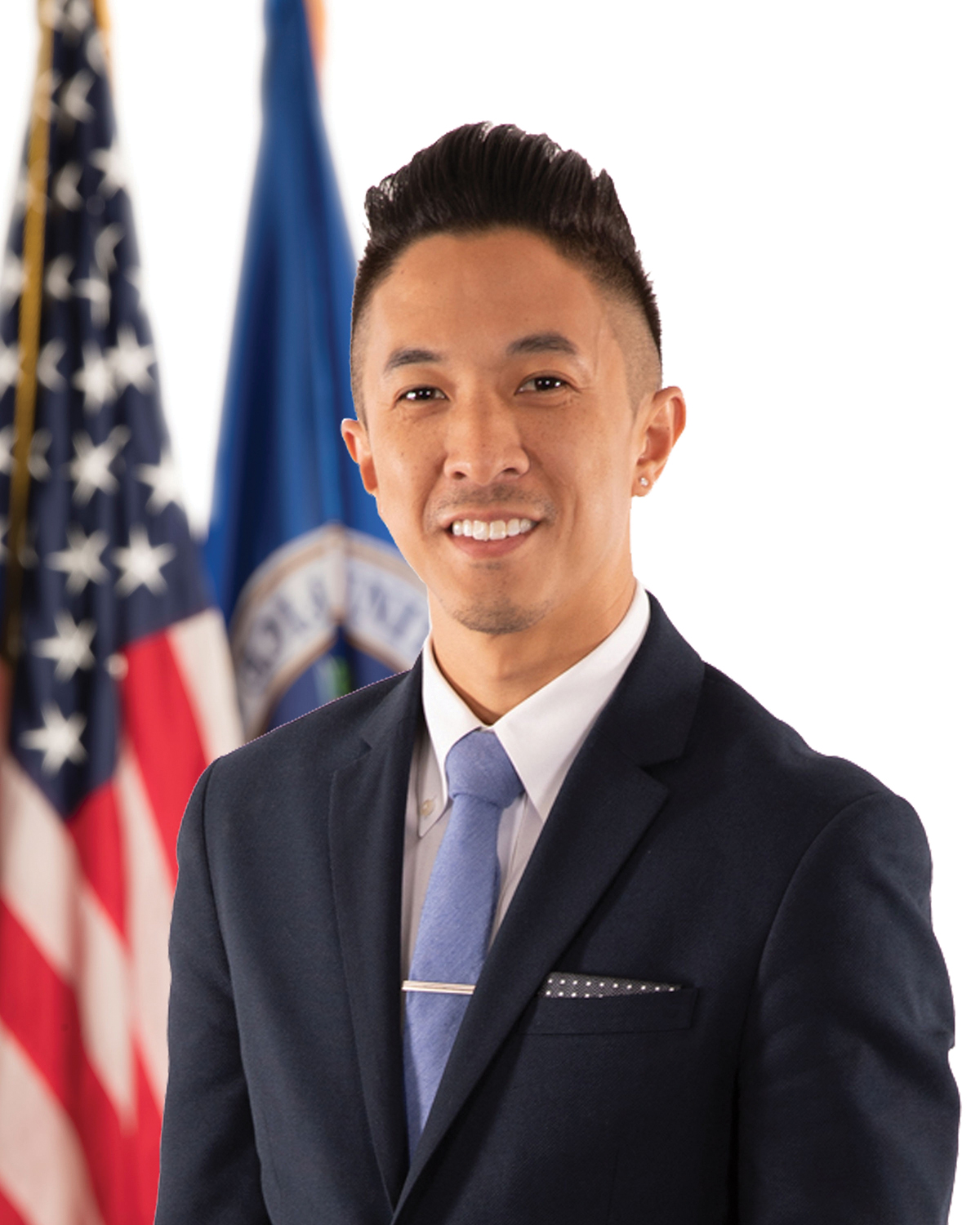 Jason Tengco
Jason Tengco
White House Liaison
U.S. Office of Personnel Management
Hometown: Foster City, CA
With over a decade of experience in public service and community organizing, Tengco serves as the primary advisor to the White House and OPM senior leadership on hiring the agency’s political appointees, manages priority projects with the Presidential Personnel Office, and supervises the processing of non-career appointments across the federal government. His resume includes the Asian American and Pacific Islander (AAPI) Outreach Lead for the Biden-Harris transition team, executive director of the National Federation of Filipino American Associations, and Deputy Director of the White House Initiative on AAPIs under the Obama-Biden administration.
How has being Filipino American shaped your identity and career path?
My identity as a second-generation Filipino American was fostered while I was a college student at UCLA. I remember asking my parents to tell me about my family’s history, and they shared stories of how my relatives served in local government, my paternal grandfather was a lawyer, and my maternal grandfather fought in World War II. I’ve come to realize that public service quite literally runs in my blood and that my ancestors paved the way for me to enter a career in government and community organizing.
Why did you join the Biden-Harris administration, and what does it mean as a Filipino American?
I joined the Biden-Harris administration because I believe in the President and Vice President’s vision and wanted to a play a part in building a better America for generations to come. As OPM’s White House Liaison, I’m passionate about helping build an Administration that “looks like America” and implementing OPM’s mission of being a champion of talent for the federal government. And as Filipino American appointee, I’m committed to strengthening the pipeline for diverse communities to enter public service.
What does Filipino American History Month mean to you?
“No history, no self. Know history, know self.” That has always been a favorite quote of mine since college. It reminds me how Filipino American History Month is an important time to reflect on our history, uplift our stories and voices, and celebrate our heritage and culture.
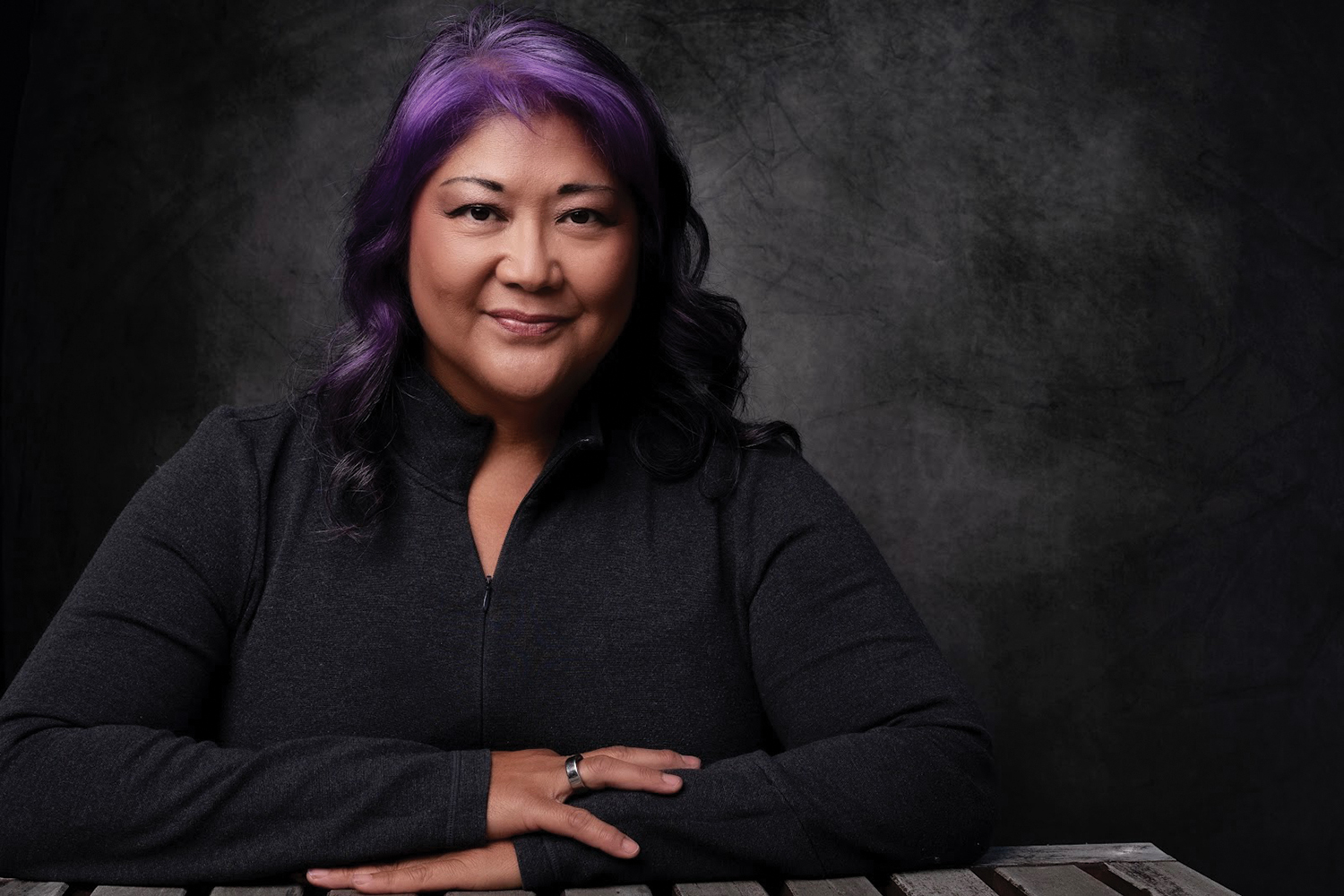
Ditas Macrine Katague
Associate Director for Communications
U.S. Census Bureau
Hometown: Sacramento, CA
An expert in multi-ethnic outreach and civic engagement, Katague is responsible for leading internal and external communications activities of the nation’s largest statistical agency, the Census Bureau. Prior to joining the Census Bureau, Katague was director of the California Complete Count – Census 2020 Office, the outreach and communications campaign that worked to ensure a complete population count of historically undercounted Californians.
How has being Filipino American shaped your identity and career path?
As a Filipino American, I am drawn to work that allows me to reach underserved populations to ensure they have a voice in decision and policy making. During my University years, I witnessed the People Power revolution and was inspired by the power that people working together can have to impact their future. My parents both instilled a sense of service to community and encouraged me to pursue a career in public service.
Why did you join the Biden-Harris administration, and what does it mean as a Filipino American?
Having the opportunity to serve the Biden-Harris Administration at the Census Bureau allows me to take the 25 years of experience leading California’s Census outreach and communications to the national level. My expertise reaching underserved populations will help connect the Administration’s policy efforts to the communities who need their voices heard – including the Filipino community. Here at the Census Bureau, I hope to be a continuous voice regarding the disaggregation of data for our communities.
What does Filipino American History Month mean to you?
I am proud to have a Filipino American History Month in addition to Asian American, Native Hawaiian, and Pacific Islander Heritage Month in May. Filipino American History Month allows me to take the time to recognize and appreciate my father who immigrated to the U.S. for better education and a brighter future for his family. This month also helps highlight the path many Filipino Americans have taken and the impact they have had on the U.S.
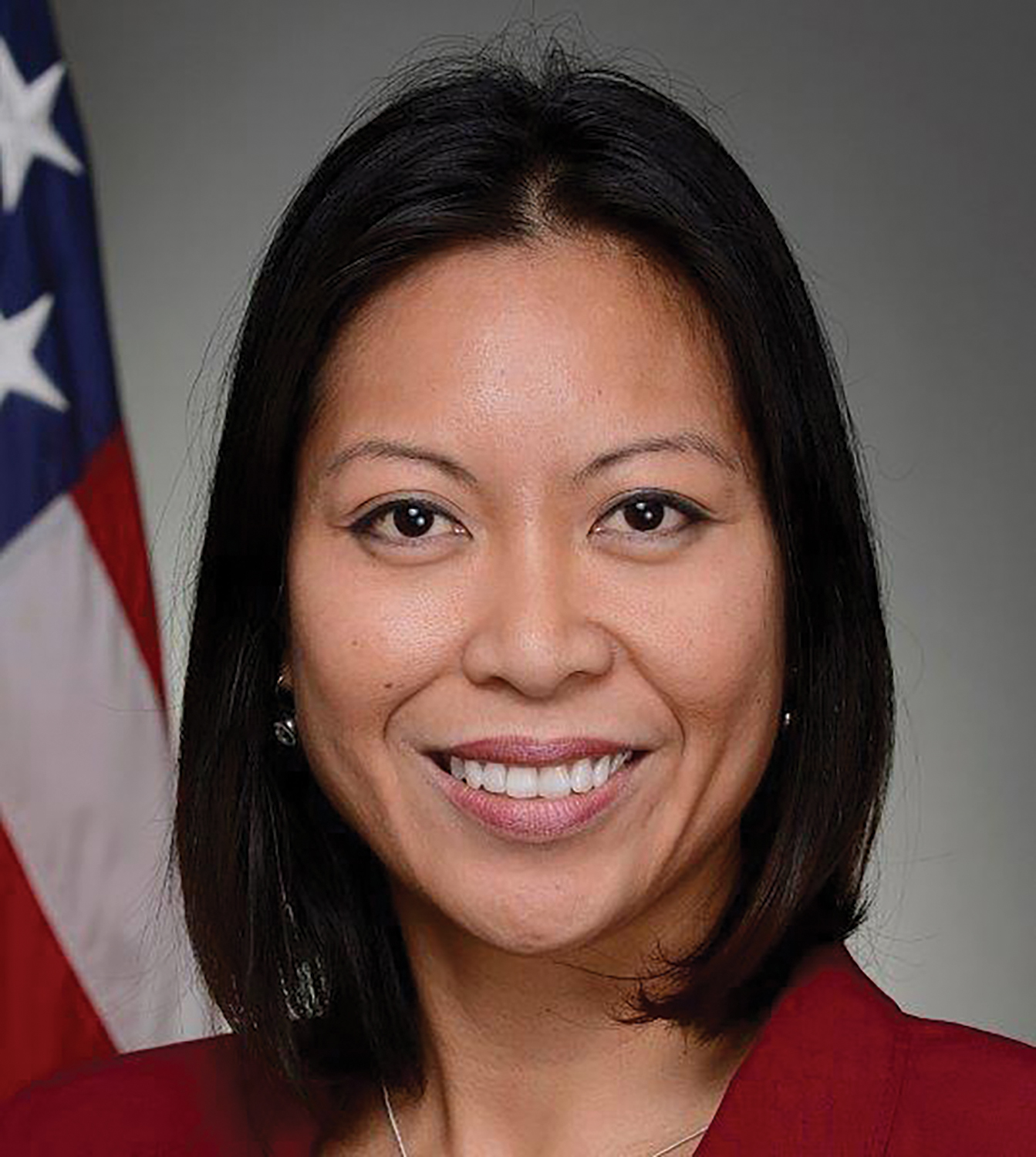
Veronica M. Valdez
Special Assistant to the Secretary of Defense, White House Liaison
U.S. Department of Defense
Hometown: Sydney, Australia
Prior to joining the U.S. Department of Defense, Valdez’s positions include the Special Assistant to the Assistant Secretary of Defense for Indo-Pacific Security Affairs and the Commission Specialist to the Commission President at the Port of Seattle. She was the former Deputy Chief of Staff to the U.S. Secretary of the Air Force and served as the Secretary’s policy advisor during official visits to Asia-Pacific, South America, and Europe.
How has being Filipino American shaped your identity and career path?
Being Filipino has always been central to my identity – speaking Tagalog, cooking and eating Filipino food, enjoying Filipino shows, and many of my close friends are Filipinos. I recall growing up going to Filipino Mass on Sundays with my family and going to Filipino Saturday school to learn about heritage and culture. We also frequently performed Filipino cultural dances during festivals and my father was the Vice President of the Filipino Cultural Association.
Being Filipino American has been one of the main reasons that I’ve been interested in learning about Asia Pacific issues. I have a Master’s degree focused on Pacific International Affairs and my policy background has been focused on Indo-Pacific relations and U.S. relationships with the Indo-Pacific.
Why did you join the Biden-Harris administration, and what does it mean as a Filipino American?
I joined the Biden-Harris Administration because I believe in this democracy and the values this Administration upholds. I serve the Biden-Harris Administration because I want to be on the right side of history and be part of the positive change that this Administration is doing on behalf of all Americans including the Filipino American community I represent. As a Filipino American in national security, it is important to me to help build the diverse bench in the national security space and I am now in a position to do so.
What does Filipino American History Month mean to you?
To me, being Filipino has always been synonymous with community so Filipino American History Month means celebrating the Filipino American community. It also means honoring our heritage and history and the many contributions our community has made to this country.
Next week’s MDWK Magazine will feature Part II of more Fil-Am officials in the Biden-Harris administration.


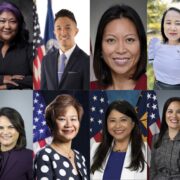


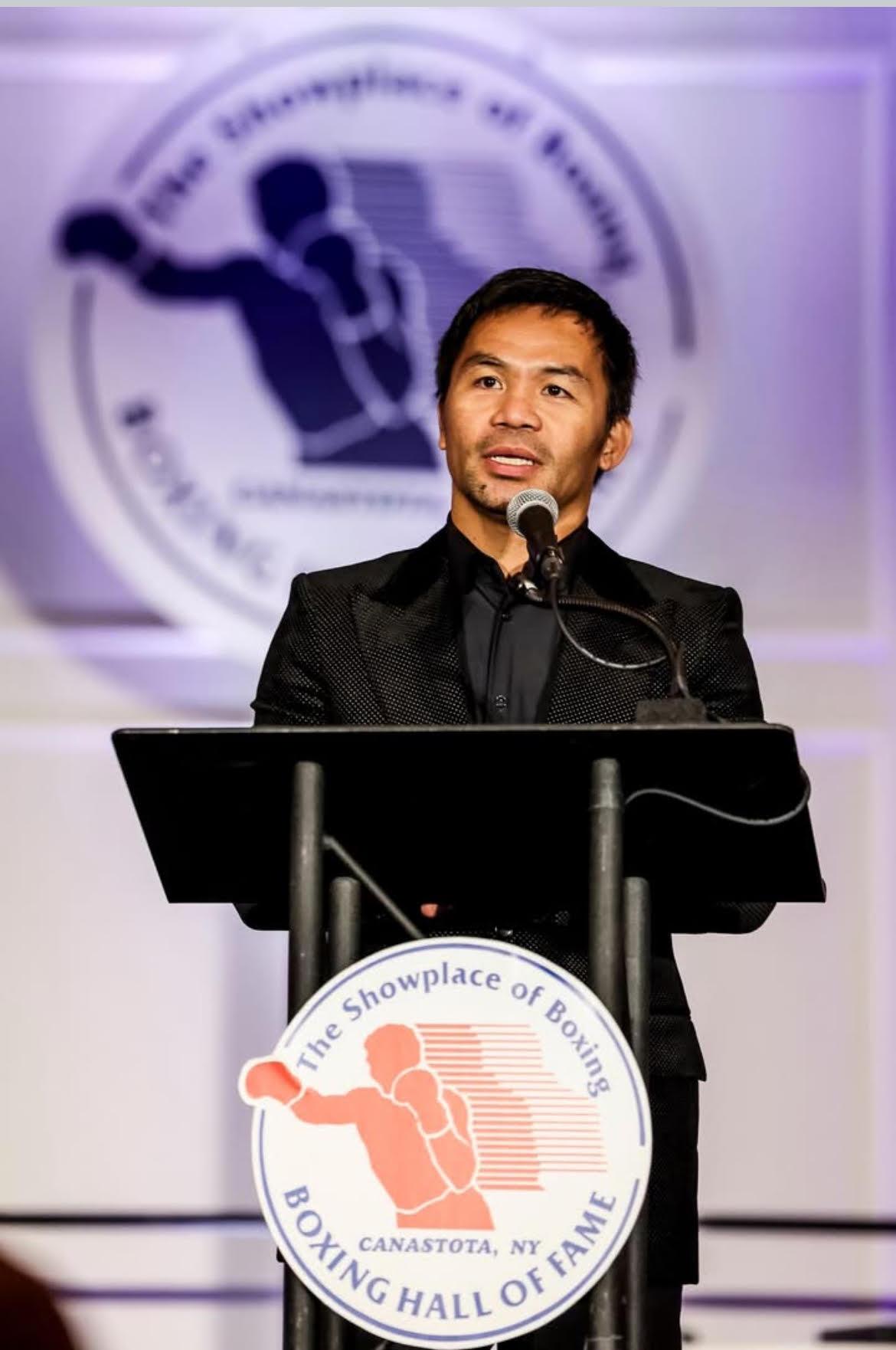

I am indeed a very proud Father, Papa, Tatay or Ama of Ditas Macrine Katague.
David B Katague, Retired Chemistry Team Leader, FDA, Silver Spring, MD